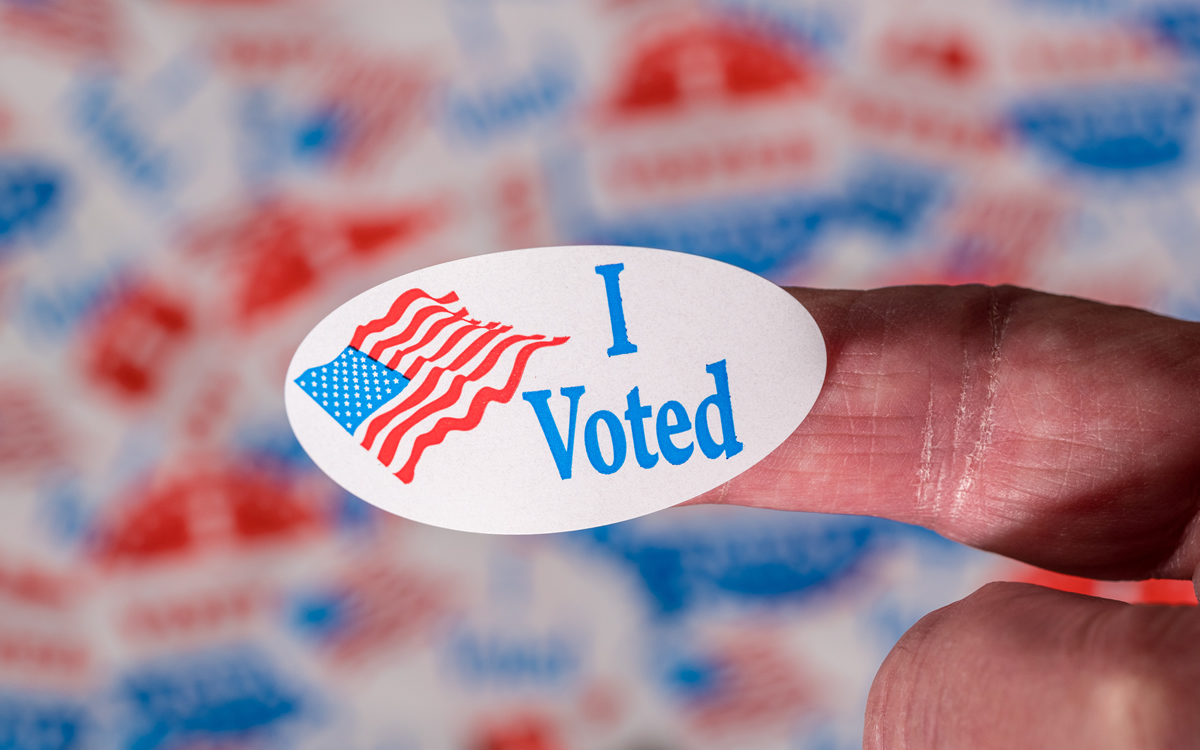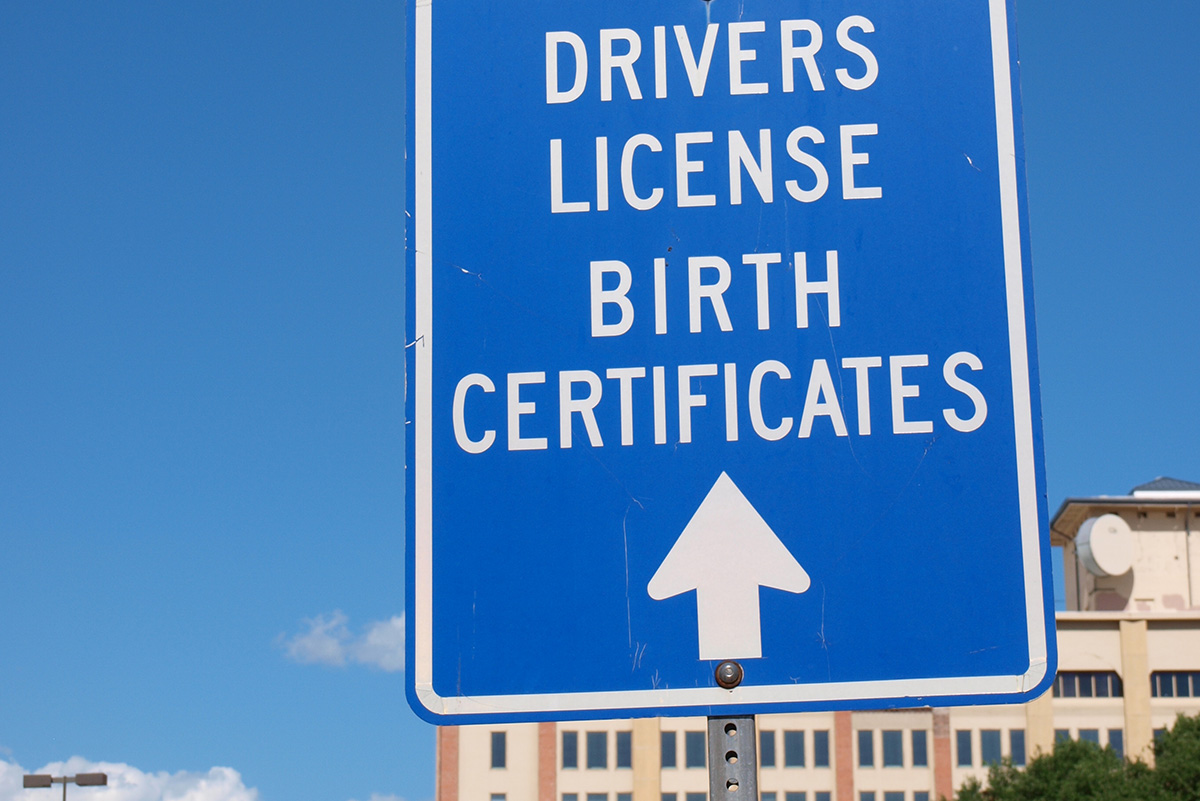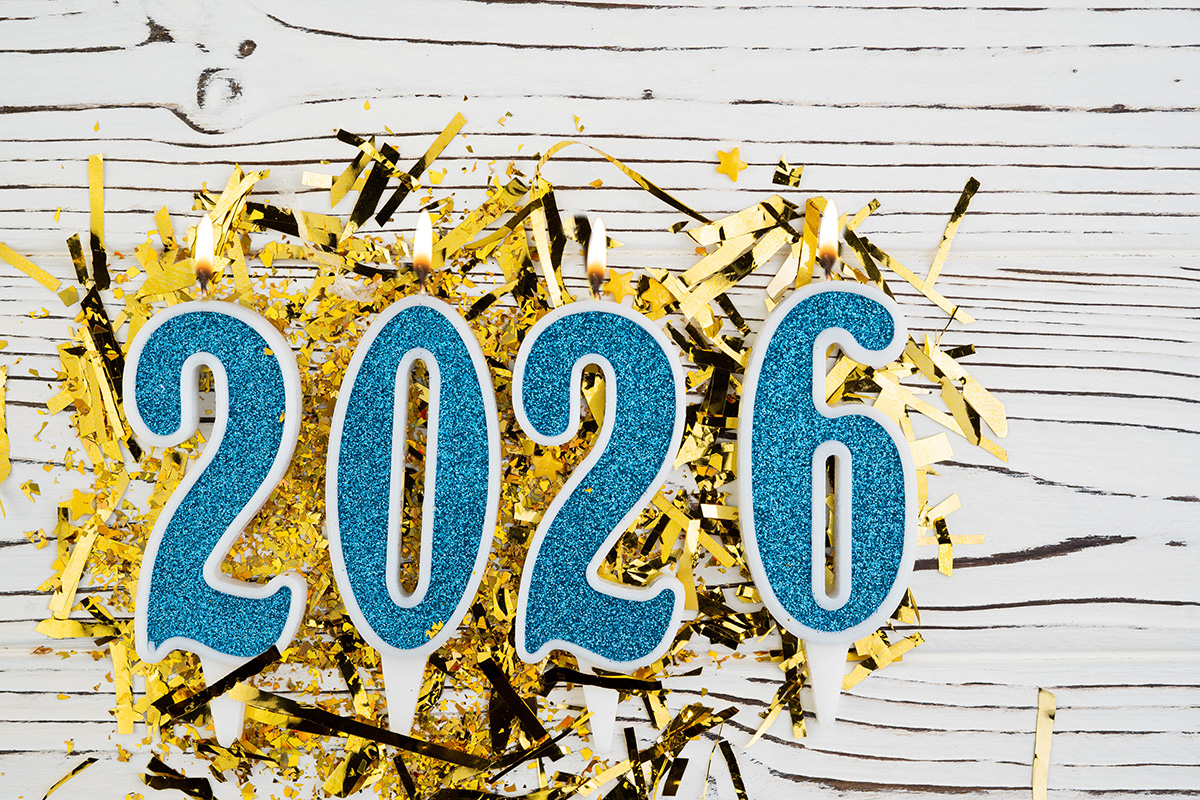Opinions
Wisconsin judicial election shows Democrats can win
We must stay united to defeat Trump’s MAGA threat

Democrats can win if they pledge solidarity. Wisconsin showed it’s possible. Solidarity doesn’t mean there aren’t primaries and debates. What it means is everyone pledges to support the winner of the Democratic primary. The midterm elections will be local elections. Democratic candidates must do whatever they can, often highlighting different issues, to get their voters to the polls. For my support in the general election, a candidate must pledge their first vote to elect Democratic leaders, whether in the statehouse, or Congress.
It’s been clear for many years what the goals of the Democratic Party are. That doesn’t mean every Democrat is for everything the party espouses. That is what comes from having a ‘Big Tent.’ The party stands for: equality, gun control, raising taxes on the wealthy, and working to ameliorate climate change. It stands for choice, passing the ERA and Equality Act, fair immigration laws, being part of NATO, and the World Health Organization. The party supports raising the minimum wage, strong Medicare and Medicaid, robust Social Security, unions, and working toward a two-state solution in the Middle East. The party supports Ukraine remaining a free nation, fair trade policies, and making sure we have three equal branches of government; legislative, executive, and judicial, to ensure a vibrant system of checks and balances. The Republican Party, which today is Donald Trump’s MAGA party, paid for by his Nazi sympathizing co-president, Elon Musk, has clearly shown they believe in none of this.
So, my serious question to those Democrats and independents, who write and shout for one reason or another, “I will never again support a Democrat,” or those who believe in these Democratic Party values but then stay home and don’t vote: What is it you are looking for? Help me, and others, to understand. With this wide schism in values between the two parties, and the reality is except for a couple of rare districts, there are only two parties that can actually win a general election, what do you think you can accomplish by your actions, or lack of action? I am at a loss. So again, please help me understand.
I was brought up on institutional politics. I believe more strongly than ever in the Democratic Party. Do our leaders do everything right? No. Do they sometimes get me mad? YES! Should some of them retire and let younger people get elected, definitely YES! But despite all of this, the schism in values is so wide, the thought of continued domination by the MAGA Republican Party is so frightening, I believe we will not have a democracy left to fight for if we don’t stand together, and defeat them.
We lost this past election and are stuck with President Felon, and his co-president, the Nazi sympathizing megalomaniac, Musk. We lost for a host of reasons, a big one is our voters either stayed home, voted for a third party, or some even for Republicans, to register their displeasure. Whatever the reason, they created this frightening reality we face today.
I have a difficult time trying to understand how others don’t see this. Or if they do, why some still don’t want to join hands, to do something about it. That is my problem, and a huge problem for the Democratic Party. The question is, how do we reach those people who often say they share the Democratic Party’s values, but don’t come out to vote in huge numbers to help change things, or at the minimum, stop Trump/Musk, and what they are doing to destroy our country?
In 2024, Trump won 77,284,118 votes, or 49.8 percent of the votes cast for president. Trump won 3,059,799 more popular votes than he won in 2020. Kamala Harris won 74,999,166 votes or 48.3 percent of the votes cast. That was 6,285,500 fewer popular votes than Biden won in 2020. So had even half of those voters come out for Harris, she might have won. So those who didn’t vote for the Democrat in 2024, where do they see the country going? What is it they want? Will anything get them to vote for Democrats in the future? In 2024, 116,000 changed votes, out of over 15 million cast in three states — 40,000 in Michigan, 61,000 in Pennsylvania, and 15,000 in Wisconsin — would have changed the election.
I hear Democrats attacking the party for not fighting back. They then follow that up with “I will never vote for Democrats again!” So, again, my question is “who is it they will vote for?” Some say they want younger people to lead the party. I agree with that. I have written there should be age limits, and term limits. I don’t like that nearly 60 out of 100 senators are over 70. Many over 80. They are in both parties. It is time to stop asking young voters to vote for their grandparents, or even great-grandparents.
But then my question to those who complain is, “what are you going to do about it?” Seems to me unless you vote, it won’t change. I think to get the younger people you want as leaders in the future, you have to work to elect them. First, encourage the people you want to run for office. When they agree, you will then have to volunteer in their campaigns, donate money if you can, and come out and vote for them. In my mind, learned in old line institutional politics, that is the way you get change.
I recently saw a post on Facebook, “sign a petition to not give any money to Democrats until Schumer (D-NY) resigns as Senate minority leader.” I am not sure what that person expects to happen, and how not giving to Democrats doesn’t play directly into the hands of Musk and Trump. Knowledge of the system, means you understand the leaders of the party in the Senate are elected by their caucus. What happens if you don’t like the Democratic caucus’s choice to replace Schumer?
For me, again an older guy brought up on institutional politics, and having political science and public administration degrees, I have a hard time understanding young people today thinking they can get instant change in politics. We do not have a king or dictator, even though Trump thinks he is one, and whose heroes are Putin and Xi Jinping. The instant change he is trying for isn’t progress, but as we see, moving backwards. Is that what we want? Our Constitution is written, and our government is set up, so change, moving forward towards progress, is incremental. It takes time. Whether it’s progress in women’s rights, the rights of the LGBTQ community, the disability community, civil rights, or ameliorating climate change; it takes time. I know that’s incredibly frustrating. But to see progress one must stick with it.
Over all the years I have voted, never have I voted for a perfect candidate. Perfect candidates, like perfect people, don’t exist. Is that what young people are looking for? I don’t know, but I think the Democratic Party, and its local candidates, need to find out what it will take to get people out to vote, and vote for them.
My thoughts are the 2025 and 2026 elections will be determined at the local level. From school board, to county council, from statehouse, to Congress. The debates, and fight for votes, will be on the ground. I believe as we move forward, the wins will come from the ground up, not the top down. It will be up to those over six million who didn’t vote for Harris in 2024, to decide if they will come out for Democrats locally in 2025 and 2026. If they do, we will win like we did in Wisconsin. If they don’t, we may actually lose our democracy.
Peter Rosenstein is a longtime LGBTQ rights and Democratic Party activist.
Opinions
A reminder that Jan. 6 was ‘textbook terrorism’
Capitol attack started an effort to make civic engagement feel dangerous

Jan. 6 taught us what it costs to defend our families and our communities.
Five years ago, Michael Fanone went to work as a Metropolitan Police Department officer and ended the day fighting for his life while defending the United States Capitol.
After Michael spoke publicly about what he witnessed on Jan. 6, the response was not disagreement or debate. It was intimidation. His mother was swatted in a targeted attack.
We are not immediate family, but we spend holidays together. Our lives overlap. And that was close enough.
Unpaid pizza deliveries were sent to our homes. Strangers showed up demanding payment. Threats followed, by phone and online. The message was unmistakable: Speaking out against Donald Trump would come at a cost, not only for you, but for your family.
As Mayor Muriel Bowser said at the time, Jan. 6 was “textbook terrorism.”
What made this harder was not only the intimidation itself, but the absence of any clear support once the headlines faded. One of us was a Metropolitan Police officer. The other served on the D.C. State Board of Education. If anyone should have known where to turn or had access to guidance or protection, it should have been us. Instead, there were no clear resources to help families deal with harassment, no guidance on what to do when threats followed us home, and no sense that anyone had our backs once the attention moved on. We were left to absorb it quietly and figure it out ourselves.
That experience changed how I understood Jan. 6, not as a single violent day, but as the start of a longer effort to make civic engagement feel dangerous and isolating. You do not have to silence everyone. You only have to make examples of a few.
I know many people in this city recognize that feeling now. The sense that speaking out carries risk. That you cannot afford to lose your job. That scrubbing your social media is safer than risking the consequences. In this context, silence is not necessarily apathy. It is self-preservation.
As a school board member and healthcare navigator, I hear it from families who decide to keep their children at home rather than send them to school. I hear it from families who decide not to re-certify their Medicaid, not because they are ineligible, but because they fear being targeted for using public benefits. These are not abstract concerns. They are everyday decisions shaped by fear of retaliation, fear learned by watching what happens to people who speak out.
More people in our city are now asking the same question my family was forced to confront on Jan. 6: Who will back you when the pressure does not stop, or when it follows you home after work?
This is where the city should step in and say clearly: We will have your back.
Yes, D.C. operates under real constraints. We lack statehood. We cannot deploy the National Guard without federal approval. Congress can overturn our laws.
But even within those limits, choices still matter. Across D.C., neighbors are walking children to school when families fear being targeted by ICE. Passersby are stopping to question why someone is being profiled or detained. These acts do not eliminate risk. They redistribute it, often making the difference between retreat and resistance.
This is not about asking everyone to be louder or braver on their own. It is about whether we are willing, as a city and a community, to make it safer for people to stand up to a bully. That means building real support around those who take risks, so they are not left isolated afterward. It means treating endurance as a shared responsibility, not an individual test.
Our city may not have all the powers it would have as a state, but we still have choices. Right now, residents and city workers who face threats are left to navigate a maze of agencies, hotlines, and informal advice on their own. That gap is a policy choice, and it does not have to remain one. There should be one clear place to go when harassment or threats occur, a single point of contact that helps document what’s happening, connects people to existing resources, and coordinates a response across agencies. Not a new bureaucracy, but a clear front door. The message it would send matters as much as the help itself. You are not on your own, and the city is paying attention beyond the news cycle.
Jan. 6 did not end at the Capitol. It moved into our neighborhoods, our families, and our daily choices. The work now is not to demand a single expression of courage, but to make it safer for all of us to stand up in our own way, together.
Allister Chang is a member of the D.C. State Board Of Education from Ward 2.
Opinions
A dangerous precedent on trans rights in Texas
State compiling list of those who have updated gender on driver’s licenses

Recent reporting from Texas Standard revealed what should alarm every American who values privacy, civil rights, and constitutional restraint: the state of Texas is compiling a list of transgender residents who have attempted to update the gender marker on their driver’s licenses.
Under a policy quietly implemented after August 2024, the Texas Department of Public Safety stopped accepting court orders or amended birth certificates as valid documentation for gender marker changes. Instead, DPS employees were instructed to forward the names and identifying information of applicants seeking such updates to a dedicated internal email channel labeled “Sex Change Court Order.” Those records, which include sensitive personal information, are now being collected internally by the state.
Texas officials have not offered a clear explanation for why this information is being gathered, how long it will be retained, or what it will ultimately be used for. That lack of transparency is deeply troubling on its own. But in the broader context of Texas’s recent legislative trajectory on transgender rights, the implications are far more serious. This is not merely a bureaucratic shift. It is the creation of a targeted registry of transgender people.
The discriminatory nature of this practice is difficult to ignore. Governments are generally prohibited from singling out individuals based on protected characteristics for special monitoring or record-keeping. Since the Supreme Court’s decision in Bostock v. Clayton County, discrimination against transgender people has been understood as a form of sex discrimination under federal law. Compiling a list of people solely because they sought to align their identification documents with their gender identity runs directly counter to that principle.
Even states with restrictive policies around gender marker changes have historically focused on procedural barriers rather than surveillance. Texas has crossed a new threshold by moving from denial to documentation. The state is no longer just refusing recognition; it is actively cataloging those who seek it.
This practice also represents a profound violation of privacy. Driver’s license records contain some of the most sensitive personal data the government holds. Associating that data with a person’s transgender status without consent or statutory justification creates obvious risks, particularly in a political environment where transgender people are already subject to heightened hostility.
The chilling effect is unavoidable. Trans Texans will now have to weigh whether engaging with basic state services could land them on a government list. That fear will discourage people from updating identification, interacting with public agencies, or asserting their legal rights at all. When a government’s actions deter a specific population from participating in civic life, the harm extends well beyond administrative inconvenience.
What makes this development especially dangerous is how neatly it fits into a broader pattern. Texas lawmakers have spent years advancing legislation that narrows the legal definition of sex, restricts access to gender-affirming care, and limits the recognition of transgender people across public institutions. The creation of this list does not stand apart from those efforts; it complements them.
Once such a database exists, it becomes a tool. Data collected today for “administrative review” can be used tomorrow to justify new exclusions, enhanced scrutiny, or punitive enforcement. History shows that registries built around identity rarely remain benign. They become mechanisms of control.
Other states are watching. Texas has increasingly functioned as a testing ground for anti-trans policy, with lawmakers elsewhere ready to replicate measures that survive legal or political backlash. If compiling a list of transgender residents becomes normalized in Texas, it will not remain isolated. Red states searching for new ways to restrict trans lives will take notice.
The constitutional issues raised by this practice are significant. The Equal Protection Clause forbids states from treating similarly situated individuals differently without sufficient justification. Singling out transgender people for special tracking invites heightened scrutiny. There are also serious Fourth Amendment concerns when the government collects and retains sensitive personal information without a clear, lawful purpose.
At stake is not just the safety of transgender Texans, but the integrity of government itself. If states are permitted to quietly assemble lists of disfavored populations, the precedent does not stop with gender identity. It becomes easier to rationalize similar measures against other groups, under different political conditions.
This moment demands scrutiny and resistance. Texas must be compelled to explain why this data is being collected, how it will be protected, and whether it will be shared across agencies. Civil rights organizations and federal authorities should treat this practice as a serious warning sign, not a minor administrative quirk.
The United States has made meaningful progress toward recognizing the rights and dignity of transgender people, but that progress is fragile. It can be reversed not only through sweeping legislation, but through quiet bureaucratic maneuvers that evade public attention.
A list of transgender citizens is not a neutral administrative artifact. It is a signal. It tells a vulnerable population that their government is watching them differently, recording them differently, and preparing to treat them differently. That should concern everyone, regardless of where they live.
If we allow this to stand, Texas will not be the last state to do it.
Isaac Amend is a writer based in the D.C. area. He is a transgender man and was featured in National Geographic’s ‘Gender Revolution’ documentary. He serves on the board of the LGBT Democrats of Virginia. Contact him on Instagram at @isaacamend

One year gone, another just beginning. The best of all worlds would be no regrets about how you lived your life in 2025, and a positive outlook for 2026. I wish that for all of you, along with good health and happiness.
For me, 2025 was a good year. No new health issues as long as I don’t consider my recent root canal. Friends kidded if that was my worst, life is OK. But then they didn’t sit in the dentist chair for three hours. As you are aware, if reading this in the Blade, I write about politics. The felon in the White House ensures there is always something to write about. Unfortunately, it’s 99% bad. He recently said he will interfere in Europe, and support far-right parties. Not surprising for him, and his fascist leaning administration. Again, as you know, I usually refer to him as ‘The felon,’ my most polite name for him. He has a slew of scary incompetents around him, but truly frightening are the fascists like Russell Vought at OMB who wrote Project 2025, and his personal Goebbels, Stephen Miller. They are proposing policies that are destroying lives. While many don’t impact me, they create a certain amount of guilt in how I live my life. I am a white, privileged, cisgender, older, male and can escape the immediate repercussions of some of the worst things happening in the world today. Nearly all perpetrated, or supported, by the evil SOB in the White House. There, another name for him.
As long as my Social Security keeps coming, and Medicare still pays 80% of my doctor bills, I should be OK. In 2025, I continued to join friends every morning for coffee. In D.C. at Java House; in Rehoboth Beach, it’s The Coffee Mill, owned by my good friends Mel Damascena and Bob Cartwright.
My regular column allows me to vent and comment on the world. My second column is the Blade’s Comings & Goings column. It lets me share the successes of so many in the LGBTQ community. We have a truly amazing community, of which I am so proud to be a part. In 2025, I also began my second book, this one on politics, but don’t hold your breath for a publication date. I am also a theater reviewer for the Georgetown Dish. I get to see as many plays as I like, and share thoughts about them. Mind you, I call myself a reviewer, not a critic. I always try to find something nice to say about every production, even if I don’t recommend others see it. Maybe a good actor, great scenic designer, always something good even in a bad production.
I am fortunate to continue to travel. Now it’s on cruise ships. Great to unpack once, and know where the bathroom is. This past year I went on two cruises, and the Blade was kind enough to publish my blogs. One, a bucket list cruise, something I wanted to do for over 40 years, to the Norwegian Fjords, and the Arctic. Twelve days on Celebrity APEX out of Southampton. It was amazing, and met all my expectations. The second was my recent transatlantic cruise, something I do annually, with a large group of friends from around the country, and world. It was 13 nights from Rome to Ft. Lauderdale. I’ve already booked next October; 16 nights on Celebrity XCEL, Barcelona to Miami. I even have two cruises booked in 2027, one a transatlantic, the other a river cruise on the Douro, in Portugal. Feel free to join me if you like cruising, at least the kind done on the water.
All-in-all, 2025 was a good year. I look forward to the same in 2026. More travel, including a barge trip in June from Lyon to Paris, through the canals of Burgundy. I hope for good health, time with good friends, and more writing. In addition, I promise my friends, and community, I will continue to fight with, and for you, trying to make our lives better. I will demonstrate against the felon and his policies, work hard to elect Democrats, especially my friend Zach Wahls, running for United States Senate in Iowa. I will stand up, and speak out, for my trans friends, and friends who are immigrants, all threatened by the felon.
I ask you to join me and do everything we can to take back our country and look forward to maybe seeing many of you on a cruise, but definitely on the battle lines, here at home. Together, we can work in 2026 and beyond, to ensure everyone can live the life they want, and deserve; in what again must be the land of the free and home of the brave.
Peter Rosenstein is a longtime LGBTQ rights and Democratic Party activist.

















